-
Doctors
-
Specialities & Treatments
Centre of Excellence
Specialties
Treatments and Procedures
Hospitals & Directions HyderabadCARE Hospitals, Banjara Hills CARE Outpatient Centre, Banjara Hills CARE Hospitals, HITEC City CARE Hospitals, Nampally Gurunanak CARE Hospitals, Musheerabad CARE Hospitals Outpatient Centre, HITEC City CARE Hospitals, Malakpet
HyderabadCARE Hospitals, Banjara Hills CARE Outpatient Centre, Banjara Hills CARE Hospitals, HITEC City CARE Hospitals, Nampally Gurunanak CARE Hospitals, Musheerabad CARE Hospitals Outpatient Centre, HITEC City CARE Hospitals, Malakpet Raipur
Raipur
 Bhubaneswar
Bhubaneswar Visakhapatnam
Visakhapatnam
 Nagpur
Nagpur
 Indore
Indore
 Chh. Sambhajinagar
Chh. SambhajinagarClinics & Medical Centers
Book an AppointmentContact Us
Online Lab Reports
Book an Appointment
Consult Super-Specialist Doctors at CARE Hospitals

Dopplers
Dopplers
Best Doppler Test in Hyderabad, India
A Doppler ultrasound is an imaging test performed to see the flow of blood through blood vessels using high-frequency sound waves. It is a safe, painless, and noninvasive test. It is similar to normal ultrasound because both use sound waves to create images. The only difference is that the normal ultrasound can only be used to see the images of the organs and it cannot be used to show the images of blood flow.
What is the purpose of a Doppler test?
Dopplers are used by doctors to find out if there is any condition that is reducing or blocking the flow of blood in your body. It is used for diagnosing heart diseases. It is also useful for checking the functioning of the heart. It helps to look for any blockages in the blood flow in the legs thus causing deep vein thrombosis.
It also helps in determining the narrowing of the blood vessels. Narrowing of arteries in the legs means that you are suffering from a condition called peripheral arterial disease and if there is a narrowing of arteries of the neck it means that you have a condition called carotid artery disease.
Types of Doppler Ultrasound Test
There are different types of Doppler tests and they include:
- Color Doppler: In this type of Doppler test, a computer is used for changing sound waves into different colors. The colors help to show the direction and speed of blood flow in the body.
- Power Doppler: It is the latest type of Doppler test. It helps to get more details about the blood flow in the body than the standard Doppler test. But, the drawback of using this Doppler is that it does not show the direction of blood flow which may be an important requirement in some cases.
- Spectral Doppler: In this type of Doppler test, the flow of blood can be seen on a graph as compared to the color pictures. This is used to see the blockage in a blood vessel.
- Duplex Doppler: In this type of Doppler test, normal ultrasound is used to take images of blood vessels and other organs. Then, the images are converted into graphs using a computer.
- Continuous-wave Doppler: In this type of Doppler test, continuous sound waves are sent and received. It helps in better measurement of blood flow at a fast speed.
What are the risks of a Doppler ultrasound?
A Doppler ultrasound is a safe and noninvasive test with minimal risks. Unlike angiograms that involve injectable contrast dyes or imaging techniques like X-rays and CT scans that use radiation, Doppler ultrasounds do not require such elements. Additionally, ultrasounds are painless and pose no harm, making them suitable even for pregnant individuals.
How is a Doppler ultrasound performed?
Before the test
Before the test, you have to prepare in the following way:
-
You will be asked to avoid smoking at least two hours before the test. Nicotine present in cigarettes will cause a narrowing of the blood vessels that can affect the results of the test.
-
You should wear any metal objects or jewelry, especially in the area where you are getting tested.
-
For some Doppler tests, you may be asked not to eat or drink for many hours before the test.
-
The doctor will give you any other instructions based on your specific health problems.
During the test
The doppler test in Hyderabad is done in the following way:
It is a painless, non-invasive, and simple procedure and can be done in the doctor’s clinic or the radiology department of a hospital.
-
You will lie down on a table and will be asked to expose the area of your body that has to be tested. A doctor will spread a gel on the skin over the area that has to be tested.
-
The nurse may tie cuffs on different parts of your body such as arms and legs to measure your blood pressure while doing the test.
-
Now, the doctor will move a wand-like device which is called a transducer over the area of your body. The device will send sound waves into your body.
-
The movement of blood cells in your body will produce a change in the pitch of the sound waves. You can hear swishing sounds during the test.
-
The sound waves are recorded and images or graphs are formed on a monitor.
After the test
After the test is finished, the doctor or the available nurse will wipe off the gel from your body.
It will take about half an hour to one hour for the test to get completed.
You can go back home after the test and resume your normal activities. You can drive home and there is no need to bring anyone along with you to drive you back home after the test.
What do the Doppler Ultrasound Results Mean?
If the results of the Doppler ultrasound are normal, it indicates that you do not have a blockage or clot or aneurysm (a balloon-like swelling in the arteries) in an artery, the blood flow is normal, and there is no narrowing of the blood vessels.
CARE Hospitals is one of the best centres to undergo the Doppler test and doppler cost in Hyderabad. If you have any questions related to the doppler test or the test results you can talk to the doctors at CARE Hospitals who are available to give answers to your questions.
Our Doctors
-

Dr. Attada Prudhvi Raj
MBBS, MD, DNB
Cardiology
View More -

Dr. A. S. V. Narayana Rao
MBBS, MD (General Medicine), DM (Cardiology), FICC, FESC
Cardiology
View More -
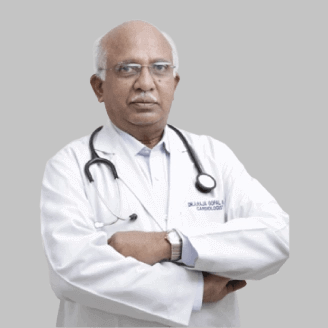
Dr. Alluri Raja Gopala Raju
MBBS, MD, DM, FICA
Cardiology
View More -

Dr. Alluri Srinivas Raju
MBBS, MD, DNB
Cardiology
View More -
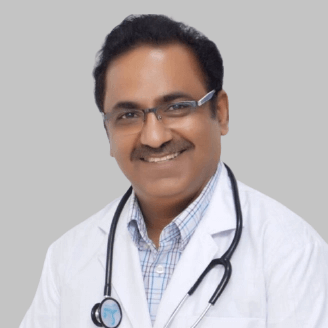
Dr. Aman Salwan
MBBS, MD, DNB Cardiology, FICS (Singapore), FACC, FESE
Cardiology
View More -

Dr. Amey Beedkar
MBBS, MD (Medicine), DM (Cardiology)
Cardiology
View More -
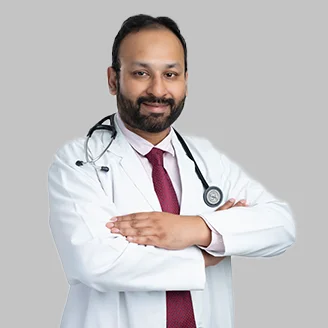
Dr. Aminuddin Ahmeduddin Owaisi
MBBS, MD, DM
Cardiology
View More -

Dr. Anand Deodhar
MBBS, MS (General Surgery), MS (Cardiothoracic Surgery), FRCS, Mch, PGDHAM
Cardiac Surgery
View More -
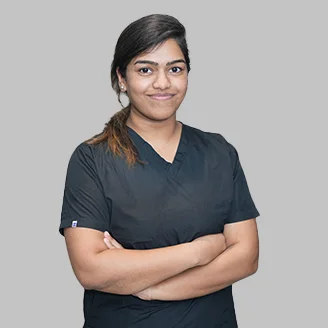
Dr. Aparna Pilla
MBBS
Cardiac Surgery
View More -

Dr. Ashish Mishra
MBBS, MD, DNB (Cardiology), FACC
Cardiology
View More -
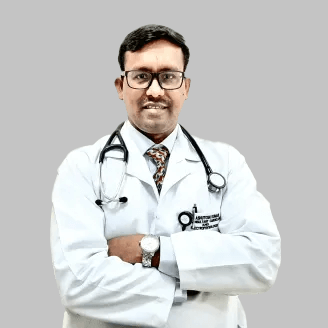
Dr. Ashutosh Kumar
MD (BHU), DM (PGI), FACC (USA), FHRS (USA), FESC (EURO), FSCAI (USA), PDCC (EP), CCDS (IBHRE, USA), CEPS (IBHRE, USA)
Cardiology
View More -
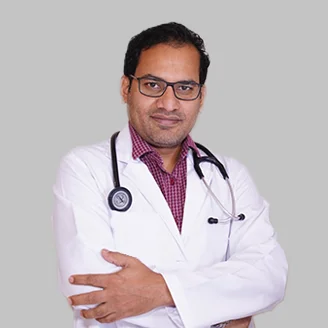
Dr. Beeku Naik Ds
MBBS (JIPMER), MD, DNB (Cardiology), FSCAI
Cardiology
View More -

Dr. Bharat Agrawal
MBBS, DNB (MED), DNB (Cardiology)
Cardiology
View More -
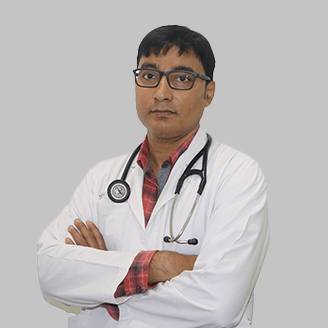
Dr. Bikram Keshari Mohapatra
MBBS, MD (Medicine), DM (Cardiology)
Cardiology
View More -

Dr. Bipin Bihari Mohanty
MBBS, MS, MCh, FIACS, FACC, FRSM
Cardiac Surgery
View More -
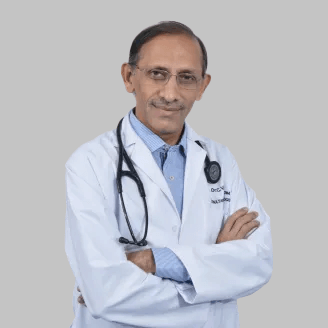
Dr. C. V. Rao
MBBS, MD (General Medicine), DM (Cardiology)
Cardiology
View More -

Dr. Chanakya Kishore Kammaripalli
MBBS, MD, DM (Cardiology) (AIIMS), FACC, FSCAI
Cardiology
View More -
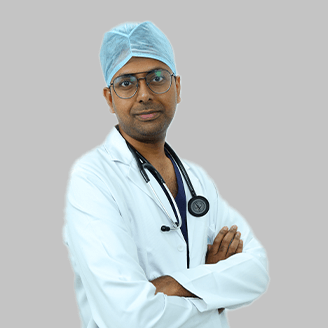
Dr. Debasish Mohapatra
MBBS, MD (General Medicine), DM (Cardiology)
Cardiology
View More -

Dr. G Rama Subramanyam
MBBS, MS, MCh (Cardiothoracic Surgery)
Cardiac Surgery
View More -
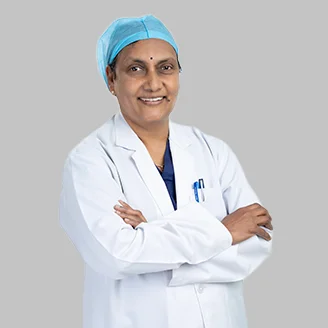
Dr. G. Usha Rani
MS, MCh
Cardiac Surgery
View More -
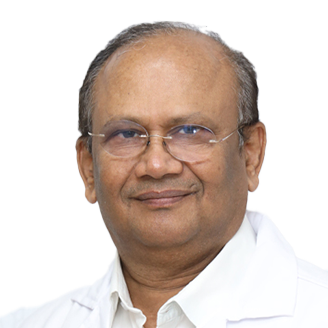
Dr. G.S.R.MURTHY
MBBS, MD (General Medicine), DM (Cardiology)
Cardiology
View More -

Dr. Gandhamdara Kiran Kumar
MBBS, MD (Paediatrics), DM (Cardiology), FSCAI
Cardiology
View More -
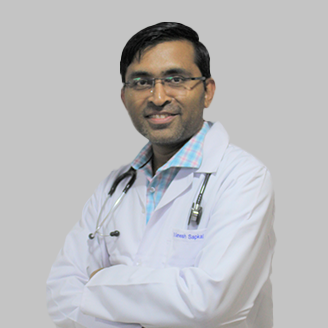
Dr. Ganesh Sapkal
MBBS, DM (Cardiology)
Cardiology
View More -

Dr. Giridhari Jena
MBBS, MD, DM (Cardiology)
Cardiology
View More -
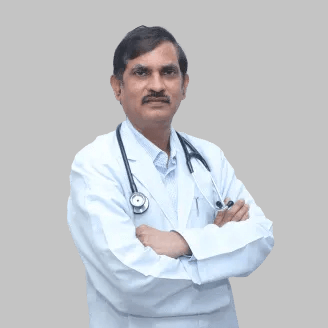
Dr. Gulla Surya Prakash
MBBS, MD (AIMS), DM, FSCAI, FACC (USA), FESC (EUR), MBA (Hospital Administration)
Cardiology
View More -

Dr. Indira Panda
MBBS, PGDCC, CCCS, CCEBDM
Cardiology
View More -
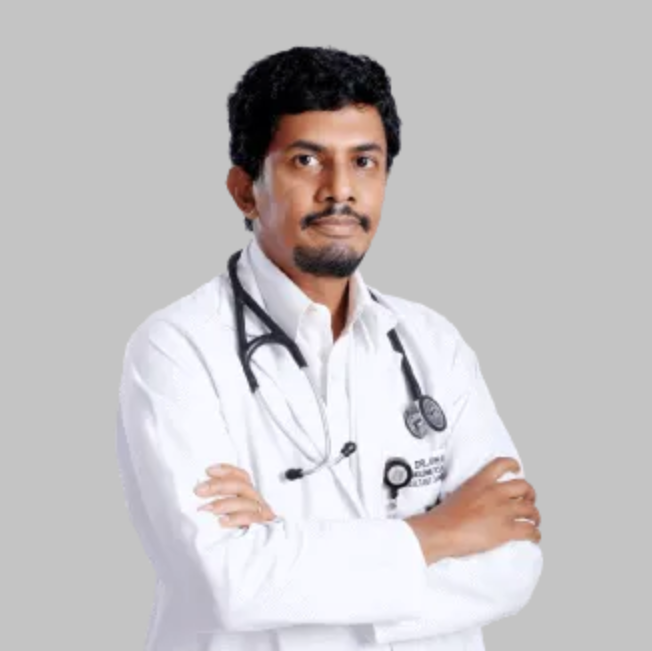
Dr. Johann Christopher
MBBS, MD, DNB, FACC, FICS
Cardiology
View More -
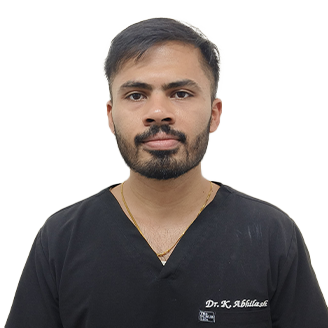
Dr. K.V.S.S.R. Abhilash
MBBS, MD, (DNB)
Cardiology
View More -

Dr. Kanhu Charan Mishra
MBBS, MD, DM (Cardiology)
Cardiology
View More -
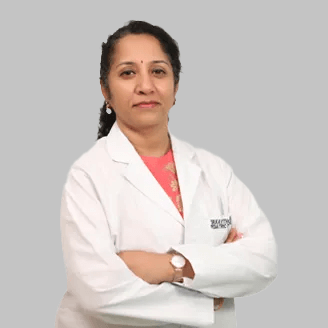
Dr. Kavitha Chintala
MBBS, MD, FAAP, FACC, FASE
Paediatric Cardiology
View More -
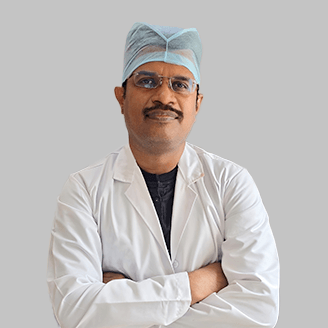
Dr. L. Vijay
DNB (General Surgery), DNB - CTVS (Gold Medalist)
Cardiac Surgery, Paediatric Cardiac Surgery
View More -
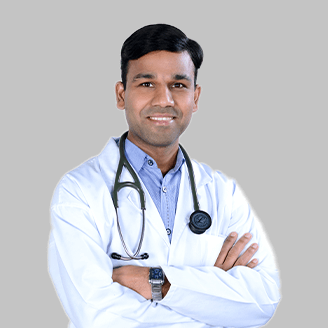
Dr. Lalith Agarwal
MBBS, DNB (Internal Medicine), DNB (Cardiology)
Cardiology
View More -
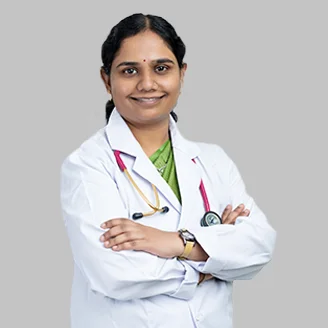
Dr. Lalitha Ravinuthala
MBBS,MD,DM
Cardiology
View More -
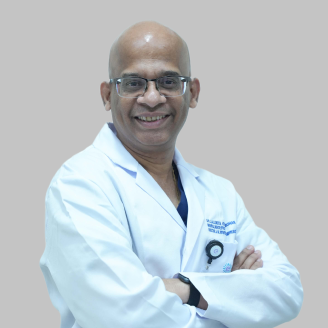
Dr. Lalukota Krishna Mohan
MBBS, MRCP (UK), FRCP (London)
Cardiology
View More -
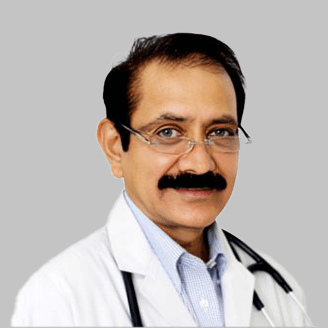
Dr. M Srinivasa Rao
MD, DM (Cardiology), FACC (USA), FESC, FSCAI (USA)
Cardiology
View More -

Dr. Mahendra Prasad Tripathy
MBBS, MD, DM (Cardiology)
Cardiology
View More -
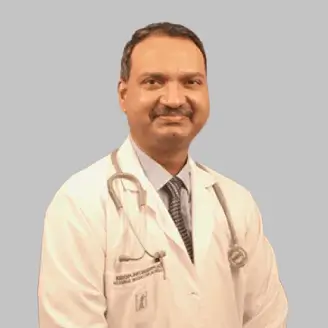
Dr. Manoranjan Misra
MBBS, MS, MCh (CTVS)
Cardiac Surgery
View More -
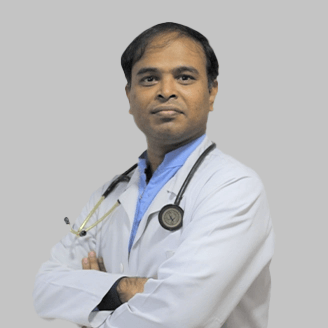
Dr. Milind Kharche
MD. DM (Cardiology ) Fellow of American College of Cardiology (FACC), Fellow of European Society of Cardiology (FESC)
Cardiology, Paediatric Cardiology
View More -
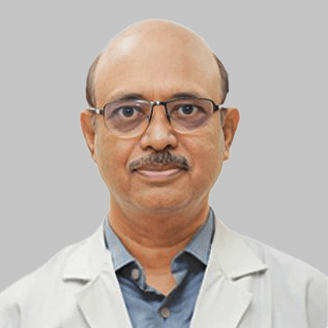
Dr. Nagireddi Nageswara Rao
MBBS, MS, MCh (CTVS), FIACS
Cardiac Surgery
View More -
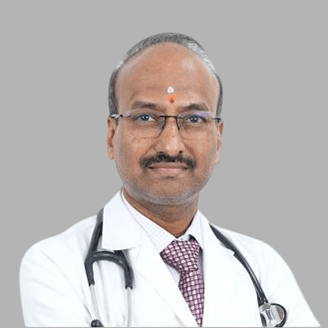
Dr. Narasa Raju Kavalipati
MBBS, MD (General Medicine), DM (AIIMS New Delhi), FACC
Cardiology
View More -

Dr. Naveen Kumar Cheruku
MBBS, DNB, DM, FESC, FSCAI (USA)
Cardiology
View More -

Dr. P Krishnam Raju
MBBS, MD, DM
Cardiology
View More -
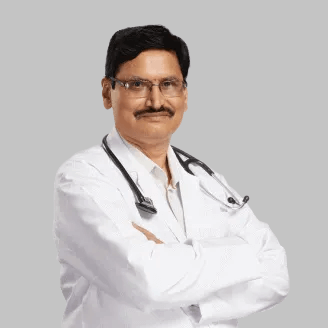
Dr. P L N Kapardhi
MBBS, MD, DM (PGIMER), FACC, FSCAI, FESC, FICC
Cardiology
View More -
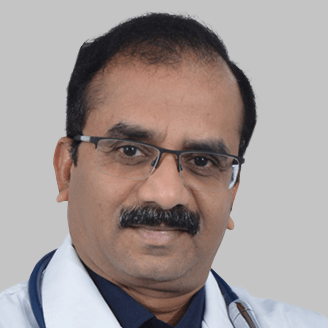
Dr. P.V.V.N.M.KUMAR
MBBS, DM (Cardiology), MD (Paediatrics)
Cardiology, Pediatric Cardiology
View More -
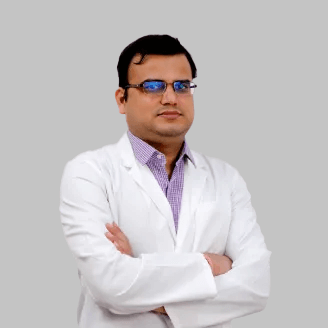
Dr. Panduranga
MBBS, MD (Internal Medicine), DM (Cardiology)
Cardiology
View More -

Dr. Pathakota Sudhakar Reddy
MBBS, MD, DM
Cardiology
View More -
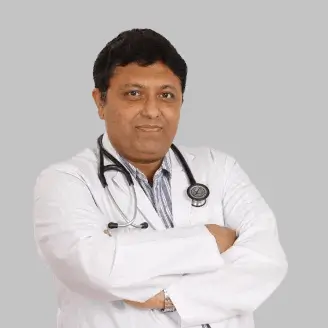
Dr. Priyen Kantilal Shah
MBBS, MD (Card, UKR), FCCP
Cardiology
View More -
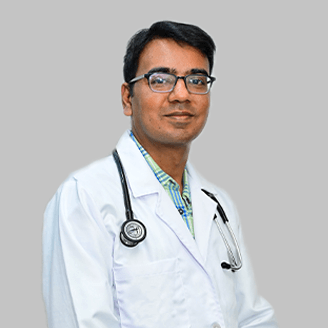
Dr. Puneet Goyal
DM (Cardiology)
Cardiology
View More -
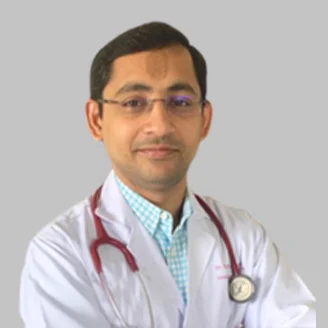
Dr. Rakesh Dubba
MD, DM, PDF
Cardiology
View More -

Dr. Ramakrishna SVK
MBBS, MD, DM, CEPS, CCDS (USA), FACC, FESC, FSCAI
Cardiology
View More -
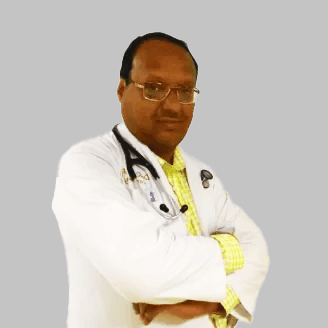
Dr. Ravi Raju
MD, FC, FACC
Cardiology
View More -

Dr. Ravi Raju Chigullapally
MBBS, DNB (CTVS), FIACS, Fellowship (UK)
Cardiac Surgery
View More -
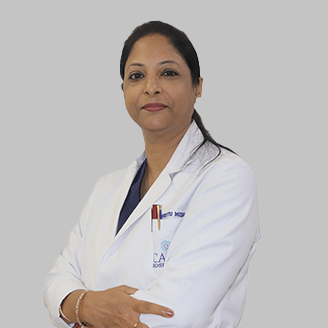
Dr. Reetu Mishra
MBBS, PGDCC, PG Diploma (Clinical Diabetes)
Cardiology
View More -
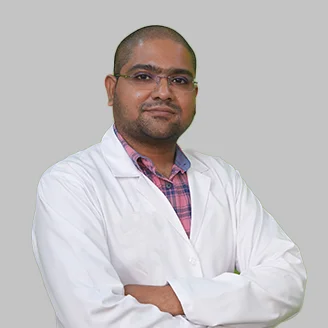
Dr. Revanth Maramreddy
MS, MCh
Cardiac Surgery
View More -

Dr. Revanur Vishwanath
MBBS, MRCP, FSCAI
Cardiology
View More -
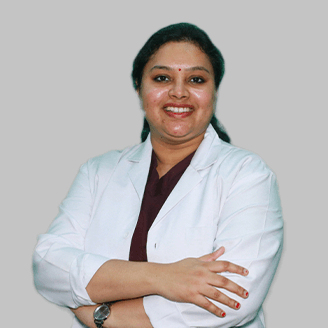
Dr. Sailaja Vasireddy
MBBS, DrNB (CTVS)
Cardiac Surgery, Vascular Surgery
View More -

Dr. Sandeep Mohanty
MBBS, PGDCC, PG Diploma (Clinical Diabetes)
Cardiology
View More -
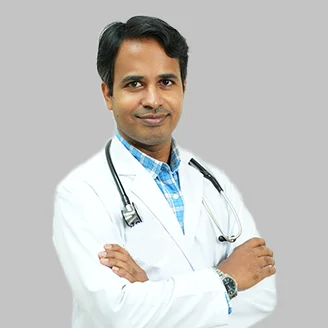
Dr. Shravan Kumar Ch
MBBS, DNB, DM
Cardiology
View More -

Dr. Sudheer Gandrakota
MBBS, DNB, CTVS
Cardiac Surgery, Vascular Surgery
View More -

Dr. Sujata Patil
MBBS, DCH, DNB (Paediatrics), FNB (Paediatric Cardiology)
Paediatric Cardiology
View More -

Dr. Sujit Kumar Tripathy
MBBS, MD (General Medicine), DM (Cardiology)
Cardiology
View More -

Dr. Surya Prakasa Rao Vithala
MBBS, MD, DM, FACC, FSCAI, FCSI, FICC
Cardiology
View More -
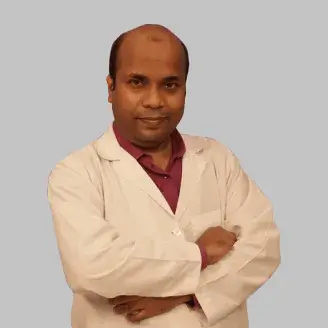
Dr. Suvakanta Biswal
MBBS, MS (Gen. Sur), MCh (CTVS)
Cardiac Surgery
View More -

Dr. Tanmay Kumar Das
MBBS, MD (Gen Medicine), DM (Cardiology)
Cardiology
View More -
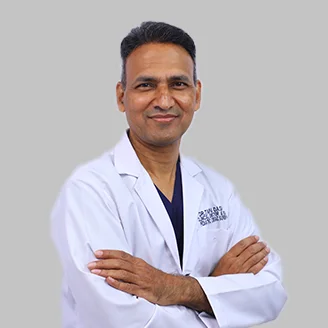
Dr. Tapan Kumar Dash
MBBS, MS, FPCS (USA)
Paediatric Cardiac Surgery
View More -
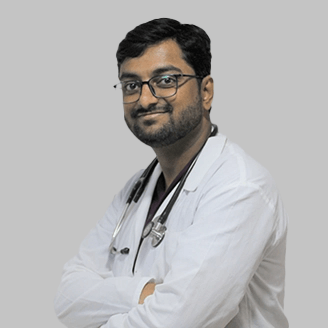
Dr. Umesh Khedkar
MBBS, MD (General Medicine), DM (Cardiology)
Cardiology
View More -

Dr. V. Vinoth kumar
MBBS, MD, DM (Cardiology)
Cardiology
View More -
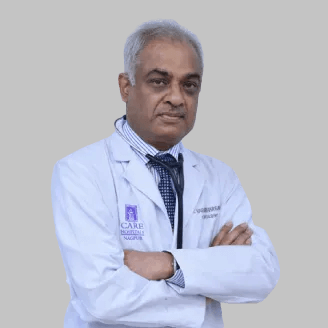
Dr. Varun Bhargava
MD, PGIMER
Cardiology
View More -
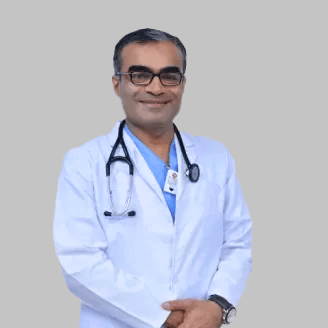
Dr. Vipul Seta
MBBS, MD (MED), DNB(Cardiology)
Cardiology
View More
Frequently Asked Questions
Couldn’t find what you were looking for?
Need any help? Get a Call Back.

Still Have a Question?

